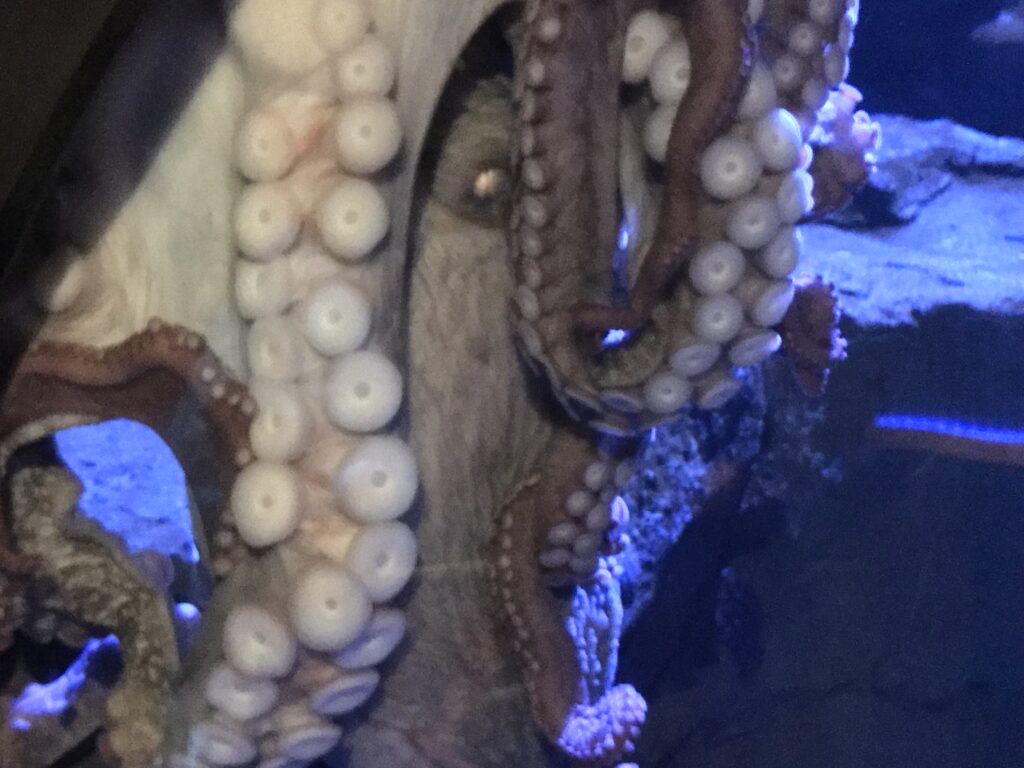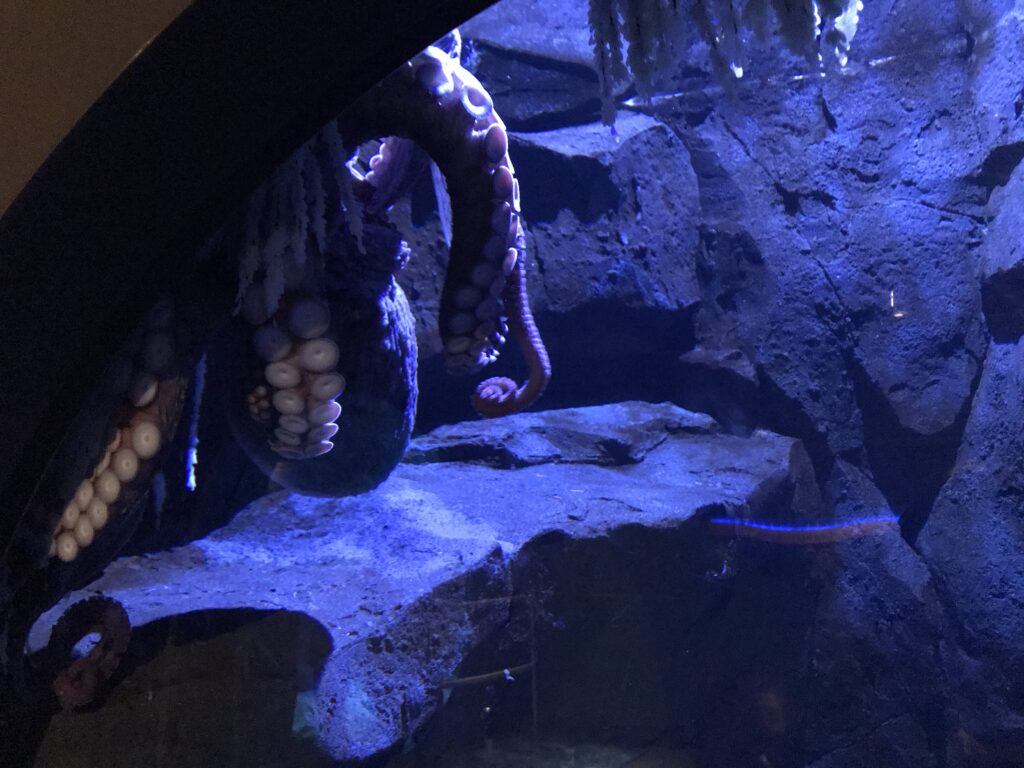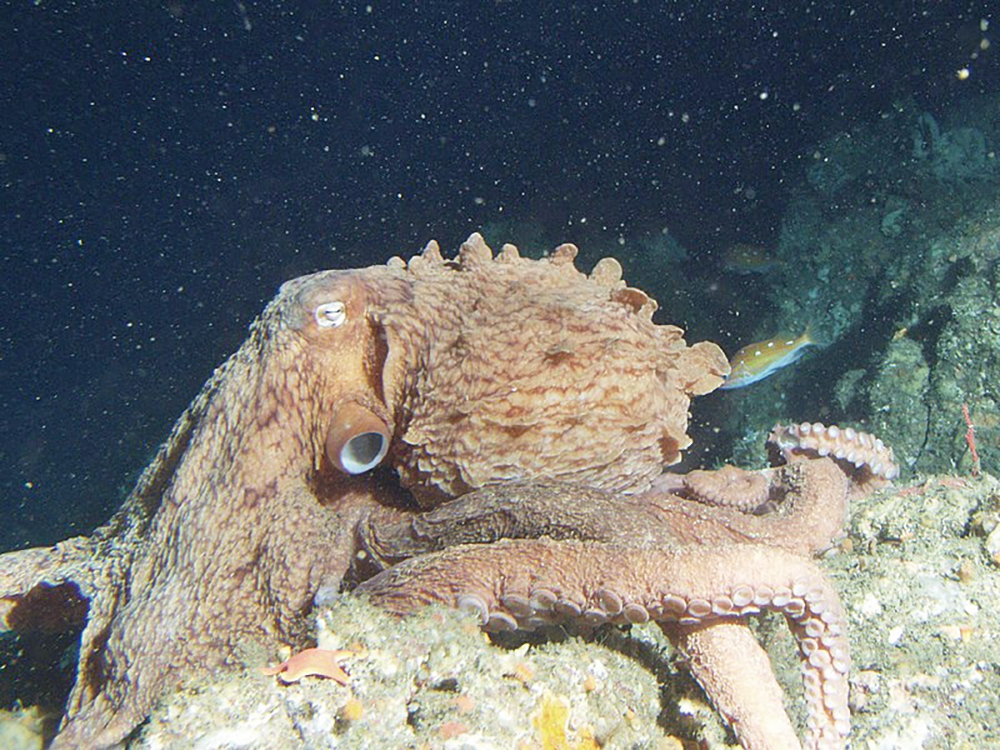
 The giant Pacific octopus
The giant Pacific octopus
This week’s article will be a bit different from the others for several reasons. First, it will be about my experience at an aquarium rather than a zoo, even though some might argue that it fails to line up with the name of this column. The second is that while my previous few articles had a sort of lighthearted tone, this one will be on the more serious side.
While at the Camden Aquarium in New Jersey I saw an animal that I have always found to be interesting, the giant Pacific octopus (enteroctopus dofleini). Their skin is usually a deep shade of red, but they can change their colors to blend in with their surroundings. Sporting eight arms lined with suction cups, a bulbous mantle (the part of the octopus that looks like a big nose), and yellow eyes with sideways pupils, it is hard to associate them with any similarities to humans. However, despite how drastically different they are from us visually, octopi are smart compared to other mollusks and are able to solve puzzles and use tools.
However, I wanted to write this article because while there, I noticed something interesting. At the glass of the tank’s viewing area, white clusters of eggs hung like pale grapes. This sight was bittersweet in my eyes. Don’t get the wrong idea. The formation of new life is a beautiful thing, but in the case of the octopus, it marks the beginning of the end.
doesn’t live very long, so female octopi only get to reproduce once. As a result, they lay thousands of eggs at a time and do everything in their power (and I do mean everything) to make sure that their offspring hatch safely. They never leave their eggs behind, only moving to clean them and protect them from outside danger, not even taking the time to search for food and eventually starving themselves to death. However, much like Moshe Rabbeinu, they fulfill their mission even if they don’t get to see the result. The eggs hatch around the same time as the death of their mother.
There is a lot to take away from this, some of which I’ve already written about. However, something I haven’t mentioned is the value of moderation. Make no mistake. I think it is important to do the right thing, but a person should know their limits. Not everyone can be a giant Pacific octopus and one should never feel pressured to. The reason they lay so many eggs is because they don’t live long enough to raise their offspring to adulthood themselves. Yes, it is good to help others one can, but only if one can afford to help oneself. After all, you can’t give if you have nothing.
Noah Motechin is a summer intern at The Jewish Link.and a rising English major at Rutgers University. He has an affinity for Torah, writing and the natural world.











